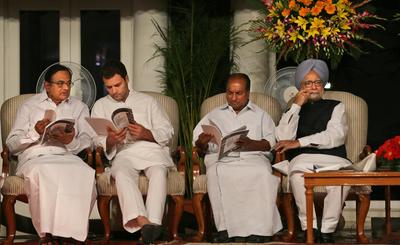The Act originally prohibited enterprises from abusing their dominant position. The 2007 amendment extended the prohibition to ‘group [of enterprises]’, which meant that when determining a position of dominance and its abuse all enterprises under the same ownership had to be considered. The 2007 and 2009 amendments, however, failed to address the issue of joint dominance, in which two or more enterprises hold dominant position and coordinate their behaviour on the market without any agreement, thereby distorting competition.
In Case No. 4/2009, the Director General of the Competition Commission of India was unable to investigate the alleged abuse of joint dominance by the airlines in the absence of provisions dealing with joint dominance in the Competition Act. The Director-General assessed their dominance individually and found no evidence of single enterprise dominance. Similarly, in Case No. 2/2009 involving Direct-To-Home (DTH) satellite dish service providers, it was alleged that the four DTH service providers, together controlling 80 per cent of the market, were abusing their position of dominance by limiting competition among themselves and forcing their respective consumers into tie-in arrangements. In this case, too, the absence of the concept of joint dominance in the Competition Act prevented any investigation of abuse of joint dominance.
The latest amendment bill proposes to bring abuse of joint dominance under the ambit of India’s competition law by inserting the term ‘singly or jointly’. But a mere change in phrasing is insufficient. The bill does not define joint dominance, which compounds the difficulty of establishing conscious parallel behaviour by observing choices made by rivals in industries dominated by a few enterprises with a high degree of interdependence in pricing and output. The proposed amendment is also incomplete with respect to regulating joint dominance post-merger, which has already been dealt with in other jurisdictions like the EU.
While the commitment of successive governments to the development of a transparent competition policy and growing acceptance of the competition law should be welcomed, the above discussion highlights a few troubling features of the legislative process in India. Since the latest amendment bill does not deal with the concept of joint dominance satisfactorily, the Competition Act may require further amendments to clarify issues that could have been addressed in the current bill itself. Incomplete and frequently amended legislation have detrimental effects on investment prospects in the economy — they enhance uncertainty by making a consistent application of law difficult, while leaving room for the exploitation of loopholes.
One may want to justify piecemeal changes on the basis that the nascent Competition Commission maybe unprepared to handle complex laws. This justification would have been plausible if the applicability of the legislation was being extended in phases to different sectors of the industry and to different anti-competitive activities. But in the case discussed here despite multiple amendments to the Competition Act the prohibition of abuse of dominant position continues to be incomplete. Here, India could learn from countries that have relatively mature competition laws.
Frequent incremental changes in laws in India can be attributed to two factors. First is the decreasing number of sittings in parliament. This reduces the time available for debates, thereby causing the increasingly divided parliament to legislate on the basis of last-minute compromises. Legislators themselves find it difficult to engage with highly technical legislation in English. Second is the insufficient public scrutiny of legislation. The capacity of those outside the government to examine legislation is weak and there is limited public involvement from academics and think tanks. In these circumstances, a few issues are over-debated in isolation, while a variety of related issues are completely ignored. For example, the debate on the need for foreign direct investment (FDI) to fuel economic growth received a lot of attention, but there was excessive focus on FDI in a few visible sectors like retail. The debate failed to acknowledge that FDI does not take place in a legal and institutional vacuum.
Informed public debates, which will force the parliament to be more careful in enacting and amending legislation, are the only antidote to half-baked legislations.
Vikas Kumar is Assistant Professor of Economics at Azim Premji University, Bangalore.
Poonam Singh is Assistant Professor of Economics at National Institute of Securities Markets, Mumbai.


I also feel that the ‘intent’ to implement any legislation is missing in India.
For example, while we have laws which provide for right to education for all children aged between 6 and 14 and while there is a law against employment of children below 14 yrs, we often see so many children working. With a complete lack of infrastructure (schools, teachers, toilets etc.), the promise is far from being fulfilled and realized.